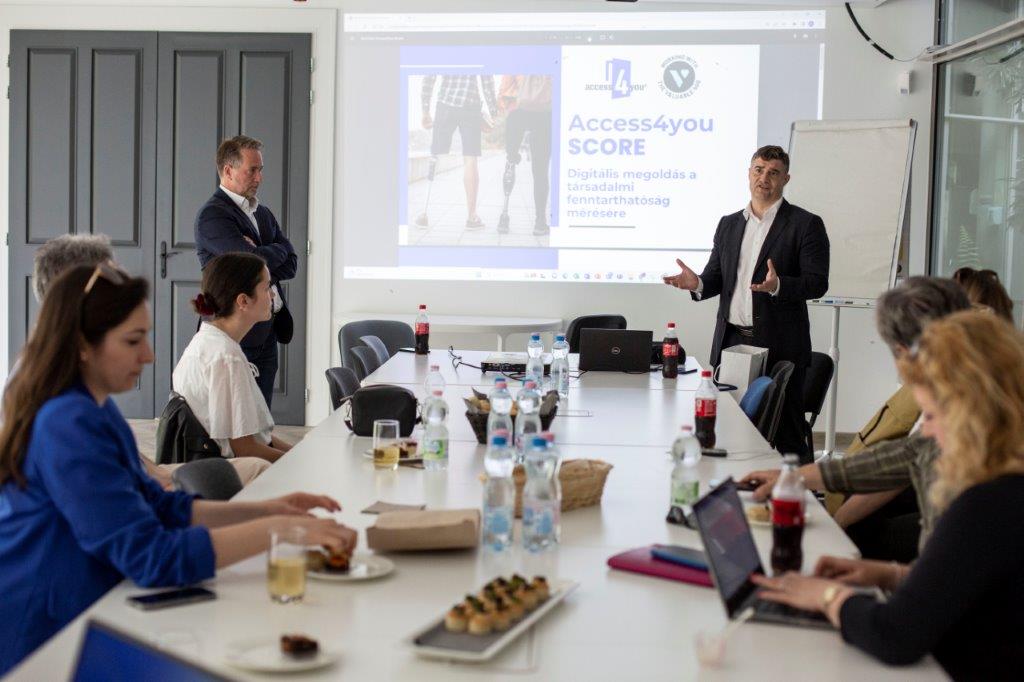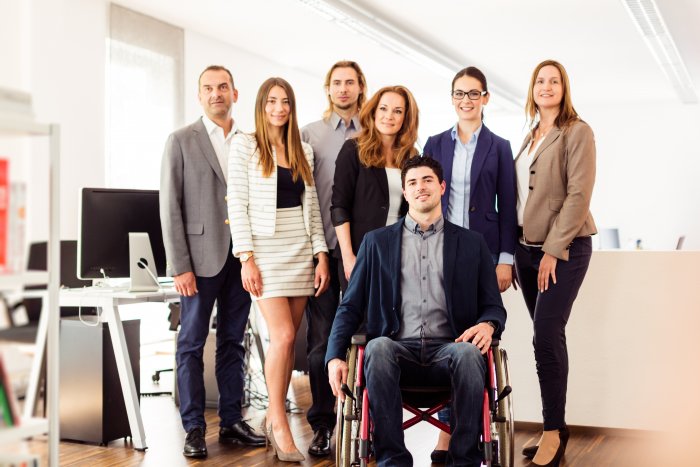The Social Aspect of ESG is Now Inescapable

Around 15% of people in society live with special needs. For them, information about which buildings are wheelchair accessible or where tactile signs are located to help blind people find their way around is essential. The "S" leg of ESG, or social needs, was the topic of AmCham's Workspace and Facilities Management Committee, where Tamás Méri, co-founder and business development director of Access4you, drew the attention of professionals to the importance of this issue in the light of increasingly stringent ESG criteria.
This year's second meeting of the AmCham Workspace and Facilities Management Committee was opened by Zsolt Kákosy, chairman of the committee and senior director of property management at Icon Real Estate Management, in the conference room of the Akadémia Park office building managed by Icon,
The second meeting of the committee focused on the "S" (social) aspect of ESG, following the environmental leg discussed in March. Kákosy, in his introduction, drew attention to the increasing prevalence and role of ESG in the real estate market, and also to the fact that while the "E" leg is more present in our daily lives and more tangible, the social approach is vaguer and less well defined, but equally important.
Tamás Méri, co-founder and business development director of Access4you, was on hand to help participants understand this. His presentation on social inclusion and its measurability covered the EU taxonomy in preparation, the situation of people with special needs, the importance of reliable accessibility information and the measurability of accessibility, and the role of trademarks.
"In Hungary, about 15-16% of people live with some kind of disability, i.e. special needs. They may live in wheelchairs, be deaf, blind or partially sighted, or have cognitive or even communication disorders," Méri stressed.
The expert stressed that "Around 80% of people with special needs become disabled after age 18, meaning that they have already experienced what life without disabilities is like as adults. This is why it is important for us as a society to ensure that most of the places that play an important role in their daily lives are accessible to them."
The social pillar of ESG is a difficult-to-define topic in which ensuring accessibility plays an inescapable role. At the same time, there is no precise definition of accessibility that describes the needs of all social groups. Clarifying, standardizing, and making it more transparent is an important challenge for society.
In his presentation, Méri highlighted that although not all buildings in the world can become accessible, there is a need for a reliable set of information and criteria that enable people with disabilities and their relatives to plan their way to an unfamiliar place and to judge whether they can overcome the obstacles they encounter. Accessible environments and credible information about them not only help people with special needs but also make everyday life easier for the rest of society, for example for people with pushchairs or elderly people with reduced mobility.
More than 100 office buildings in Hungary now have the international Access4you certification mark, with certificates in four different categories. This provides the opportunity to identify areas for improvement, and the certificates and survey data can be integrated into ESG reporting processes and used to form KPIs.
SUPPORT THE BUDAPEST BUSINESS JOURNAL
Producing journalism that is worthy of the name is a costly business. For 27 years, the publishers, editors and reporters of the Budapest Business Journal have striven to bring you business news that works, information that you can trust, that is factual, accurate and presented without fear or favor.
Newspaper organizations across the globe have struggled to find a business model that allows them to continue to excel, without compromising their ability to perform. Most recently, some have experimented with the idea of involving their most important stakeholders, their readers.
We would like to offer that same opportunity to our readers. We would like to invite you to help us deliver the quality business journalism you require. Hit our Support the BBJ button and you can choose the how much and how often you send us your contributions.










